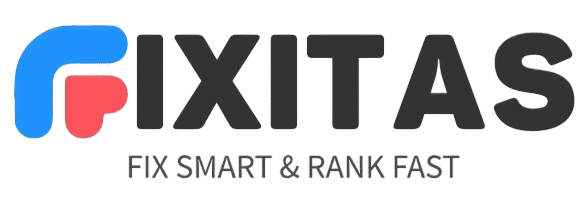Google rank tracking explodes, SEO tools scramble
If you use SEMrush, Ahrefs, Google Search Console or any other SEO software – you may have noticed some strange data this month.
Why? Because Google removed the option to see the top 100 search results (using the parameter &num=100), instead limiting it to only the top 10. Which is bad news for SEO tracking tools. The cost of sourcing ranking data suddenly increased by 10 times overnight.
Brody Clark was the first to notice this change. So please check out their insights here or the LinkedIn post below for more details on their findings.
So far, it seems to have two big effects…
1) Search tracking tools are affected. Rising costs, missing data. The way he has worked over the years is under doubt. SEMrush and Ahrefs are already questioning the value of tracking beyond the top 20 search results, and AI platforms like ChatGPT are also potentially being impacted (perhaps by design?) – we may soon see some significant changes to the way Google’s search results are crawled by third parties. Especially when Google recently advertised for an “Anti-Scraping Engineering Analyst”.
2) Google Search Console data has also declined. And the leading theory is that it’s because these third-party tracking tools are suddenly not crawling the web as frequently. Some sites are seeing drops of up to 50% in search impressions (including us here at Energy PR), meaning third-party tools may be responsible for up to half of all search impressions. half?! That is madness. SEOs originally thought that the recent increase in search impressions was due to AI search, but that was probably not the case. Perhaps it was just third-party tools that were crawling our websites en masse.
What does this mean for digital PR?
This is a big deal on some fronts. First, SEO and digital PR rely heavily on search tools – especially rank tracking software. This is one of the main ways we can measure the effects of our work on website visibility and performance. Yes, some of these tools are arguably less important in the age of AI discovery. But they are still very essential for anyone in the industry. So if these devices no longer work, our day-to-day work will be drastically affected.
Additionally, it also points out that our existing search data has been wrong for some time. If the ‘Great Decoupling’ Was Just the increase in bots, then we’ve been dealing with inaccurate search data for quite some time. Which means that reports will need to be interpreted and future measurements may require changes. But to be fair, search impressions have always been more of a vanity metric – so maybe this is the push the industry needs to start measuring metrics that actually matter?
New AI updates coming to Google Chrome
Google has just announced some new Chrome features. And as with anything Google does, these can have a huge impact on the search landscape (and on our work as digital PRs). Main attractions are:
-
The new ‘Gemini in Chrome’ functionality means you can now access an AI assistant that can work on tabs, with agentic capabilities coming soon.
-
New AI mode button in the Chrome search bar, so users can search directly in AI mode instead of clicking on it after searching.
-
The new security features aim to improve both online security and the search experience.
Watch the video below for more details.
It’s an indication of what exploration might look like in a few years. Personalized AI agents you can reach everywhere, supporting everything you do online – even running errands for you. And for Chrome’s 3.45 billion users, the arrival of these features is a huge deal.
What does this mean for digital PR?
Like most of these AI updates, no one is 100% certain. But I think what it does mean is that personalization and audience targeting is going to become even More important for PR.
Such AI features are completely personal. They have access to all your information, they remember everything you’ve searched before. And if everyone is using these AI assistants, a “spray and pray” approach to PR won’t cut it.
We need to reach our target audience. Where do they spend their time? Where do they get their information? What bothers them? We need to build detailed, behavior-focused audience personas – and then drive everything we do from them. Whether it’s the news story we’re creating, the language we’re using or the media title we’re promoting, we need to do the audience is mesmerized,
If we do this, we cannot go wrong.
What else is new in digital PR and SEO?
-
google discover Adds follow buttons and social postsYou can now follow publishers directly in Discover, and social media posts will soon be included in the feed as well. Great news for publishers. But for PR? This means more opportunities to reach and engage our target audiences, and an even greater need for proper investment in audience analytics.
-
august Spam update has finishedInitial reports are that it has done a great job of removing spam from SERPs. But it’s all a bit messy due to rank tracking issues (covered above). So who knows?!
-
Penske Media Google sued over AI overviewThe Rolling Stone publisher is the latest in a long list of publications to launch legal action against AI search companies. Will it go anywhere? Probably not. But it’s another sign that publishers aren’t just sitting back and accepting their fate. watch this space.
-
Microsoft announced Content marketplace to compensate publishers in AI searchThis may be the sustainable business model that publishers (like Penske Media) are looking for. It’s only a pilot project right now, but it could be really exciting for the publishing industry.
written by
Ben Eaglestone, SEO and Insights Expert energy pr

